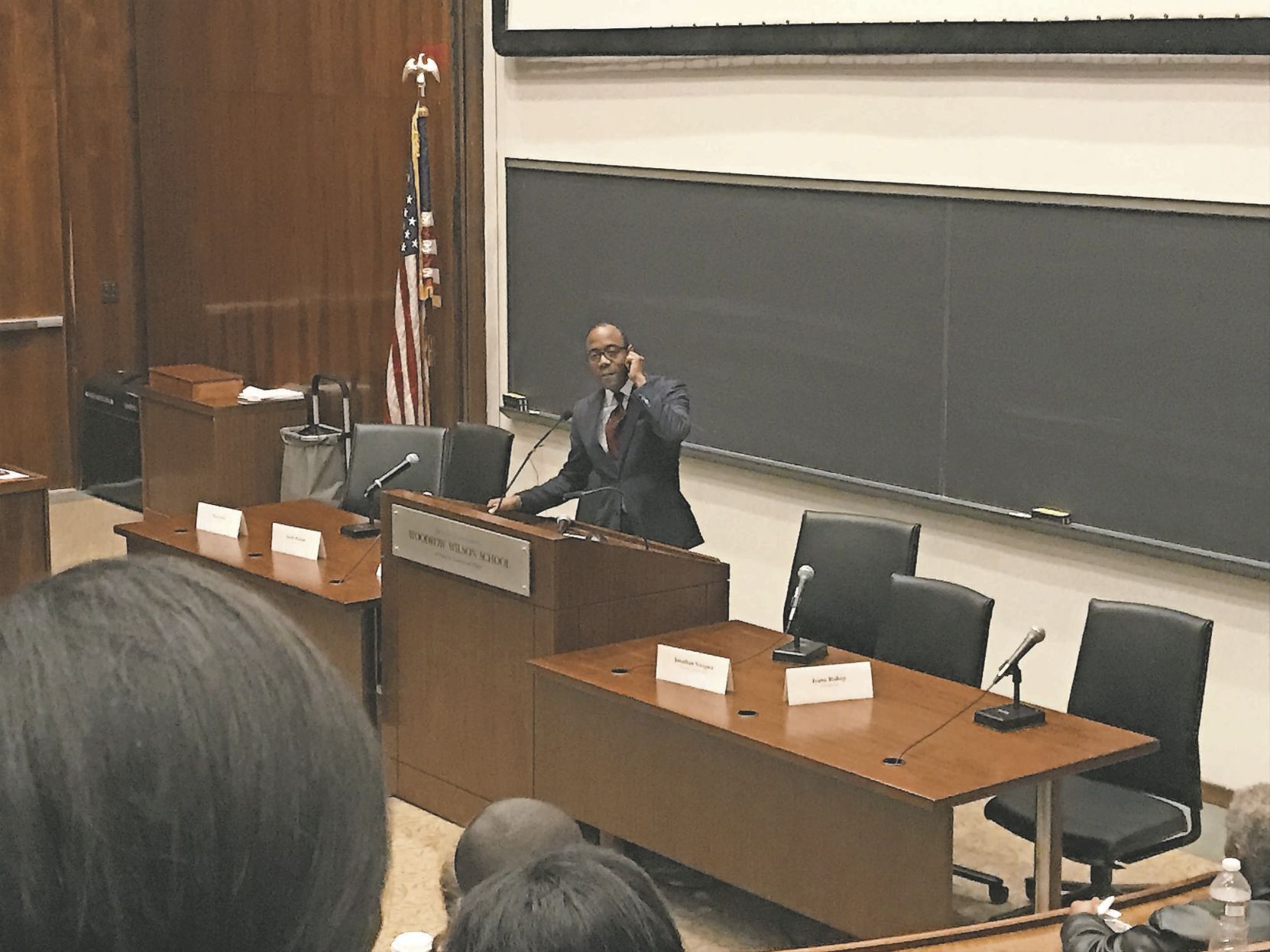By Somi Jun, Correspondent
Cornell Brooks, president of the National Association for the Advancement of Colored People (NAACP), said that the 2016 presidential campaign helped normalize racism, anti-Semitism, misogyny, and Islamophobia.
Brooks cited an uptick in the number of hate crimes in the past year during a talk at Princeton University April 29, and called the Executive Office building of the White House an office for the alt-right.
“We have seen in these recent days an office of legitimacy for the alt-right, opened up in the West Wing of the White House,” Brooks said. “This is not a partisan observation.”
According to Brooks, millennial activists are leading movements for criminal justice reform, the advancement of voting rights, and combating hate crime during this “anguishing moment” for America’s democracy. Brooks said that it is not enough in this political moment to issue a press release or post on social media. Rather, he praised the millennials who put their bodies on the line to protest police brutality and called for more advocates to assert themselves.
“We see a millennial generation of advocates who assert with their minds, their hearts, and their very bodies that black lives matter,” Brooks said. “They say so unapologetically, with the understanding that when you assert that black lives matter, it is the ethical predicate to the moral conclusion that all lives matter.”
Brooks addressed concerns about political correctness by saying that it is impossible to be too sensitive to dehumanization.
“We cannot underestimate what is happening in this country. Some dismiss this as a college prank, as locker room banter. Some dismiss this moment as a matter of those who subscribe to political correctness being overly sensitive,” Brooks said. “You cannot be overly sensitive to the demeaning and dehumanization of your fellow citizens.”
Brooks spoke as part of a symposium on race relations for high school student activists. He described the students’ work as part of a lineage that included Rosa Parks, Martin Luther King Jr., and Rep. John Lewis. Brooks said that Lewis, who spoke at the March on Washington when he was 19-years-old and wrote letters to King when he was just 17, had been an activist since his teenage years.
“In the movement, you need everybody,” Brooks said.
Brooks called for a civil rights movement that unites generations, emphasizing the historically low voter turnout from youth in 2014.

